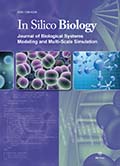Authors: Yang, Yuchen | Tantoso, Erwin | Chua, Gek Huey | Yeo, Zhen Xuan | Ng, Felicia Soo Lee | Wong, Sum Thai | Chung, Cheuk Wang | Li, Kuo-Bin
Article Type:
Research Article
Abstract:
P53 is probably the most important tumor suppressor known. Over the years, information about this gene has increased dramatically. We have built a comprehensive knowledgebase of p53, which aims to facilitate wet-lab biologists to formulate their experiments and new-comers to learn whatever they need about the gene and bioinformaticians to make new discoveries through data analysis. Using the information curated, including mutation information, transcription factors, transcriptional targets, and single nucleotide polymorphisms, we have
…performed extensive bioinformatics analysis, and made several new discoveries about P53. We have identified point missense mutations that are over-represented in cancers, but lack of functional studies. By assessing the capability of six p53 transcriptional targets' tag SNPs selected from HapMap to capture SNPs obtained from National Institute of Environmental Health Sciences (NIEHS) Environmental Genome project and vice versa, we conclude that NIEHS data is a better source for tagSNP selections of these genes in future association studies. Analysis of microRNA regulation in the transcriptional network of the p53 gene reveals potentially important regulatory relationships between oncogenic microRNAs and transcription factors of p53. By mapping transcription factors of p53 to pathways involved in cell cycle and apoptosis, we have identified distinctive transcriptional controls of p53 in these two physiological states.
Show more
Keywords: p53, transcription factor, transcriptional target, somatic mutation, point missense mutation, mutation analysis, single nucleotide polymorphism, tagSNP, HapMap, NIEHS, microRNA, pathway analysis
Citation: In Silico Biology,
vol. 7, no. 1, pp. 61-75, 2007
Price: EUR 27.50




